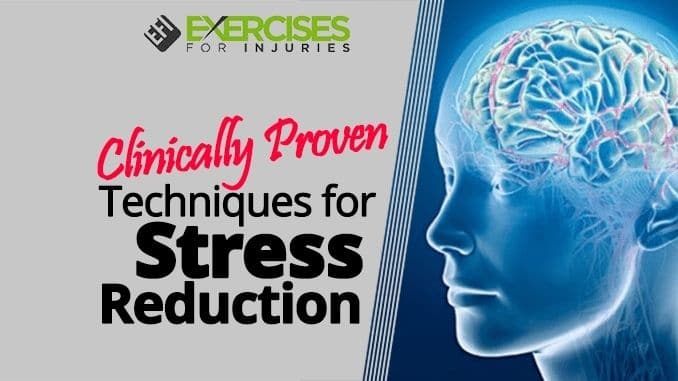Healthy relationships are the foundation of gaining a well-rounded life for human beings. Whether they be with family members, friends, partners, or colleagues, these connections profoundly impact our emotional, mental, and physical health. They serve as the scaffolding that supports us through life’s challenges and celebrations, offering solace, joy, and a sense of belongingness. In this exploration, we will discover new ways to maintain and nurture relationships, the importance of relationships, and understanding how they contribute to our human connection for growth and happy life.
6 Major Types of Relationships
These are the diverse nature of relationships, showcasing the positive aspects as well as the challenges that can arise:
1. Platonic Relationship
Platonic relationships are deep friendships without romance. They prioritize trust, respect, and empathy, fostering enduring connections.
2. Romantic Relationship
Romantic relationships involve physical intimacy, marked by love, commitment, and open communication, fostering deep and enduring connections.
3. Codependent Relationship
Codependent relationships involve excessive reliance on one partner, hindering personal growth and autonomy. Recognizing and addressing codependency is crucial for healthier dynamics.
4. Casual Relationship
Casual relationships involve light social interaction without deep emotional commitment. They offer flexibility for exploration without long-term plans.
5. Open Relationship
Open relationships involve consensual non-monogamy, fostering personal growth through honest communication and autonomy.
6. Toxic Relationship
Toxic relationships are marked by harmful behaviors and manipulation, threatening mental and emotional well-being. Recognizing and addressing toxicity is crucial for personal health and growth.
To shed light on the significance and importance of relationships, let us take a look at what the researchers have to say.
Significant Research Findings
Here are some studies and findings related to the importance of healthy relationships:
1. The Impact of Personal Relationships on Health
A study published in Plos Medicine (Julianne Holt-Lunstad et al., 2010) found that personal relationships and social connections significantly impact an individual’s health, including life expectancy. People with strong social relationships had a 50% greater likelihood of increased life expectancy than those with weaker connections. Similarly, research calculates that committing to a life partner can add 3 years to life expectancy.
2. The Role of Romantic Relationships in Health
In a study published in the Journal of Marriage and Family (Robles et al., 2014), researchers examined the health benefits of committed romantic relationships. The study revealed that individuals in committed relationships experienced lower stress levels and better overall health.
3. Social Relationships and College Students
Peer-reviewed research published in the Journal of Experimental Biology conducted among college students (Seppälä et al., 2013) highlighted the importance of social relationships in the academic context. Students who reported having strong social bond systems were found to have improved immune function.
4. Emotional Support and Health:
In a comprehensive review published in Yale University Press (Uchino, 2004), the author explored the impact of emotional support from personal relationships on health outcomes. The study concluded that emotional support from strong relationships can significantly improve mental and physical health.
5. Committed Relationships and Health Risks:
Kiecolt-Glaser et al. (2005) investigated the effects of committed relationships on poor health. The findings suggested that individuals in committed relationships had reduced inflammation and lower susceptibility to illnesses than those without such relationships.
These studies underscore the importance of relationships, including romantic and social connections, in promoting better health, increasing life expectancy, and mitigating various health risks. Strong relationships are crucial for human well-being and overall quality of life.
Importance of a Healthy Relationship
Why are personal relationships important? Why do we need to maintain and nurture them?
Maintaining and knowing the importance of healthy relationships is multifaceted and far-reaching. These connections are a source of joy and companionship and fundamental to our overall health, resilience, and personal growth. Build healthy relationships for a richer, more meaningful life.
Consider these relationships as life partners, which will lead to its benefits:
1. Emotional Health
As a fundamental pillar of support and enrichment in our lives, healthy relationships are integral to emotional well-being. A robust support system formed through deep connections with friends, family, or partners contributes significantly to our emotional resilience. Whether celebrating triumphs or weathering challenges, the shared experiences within healthy relationships create a sanctuary of emotional strength and understanding.
2. Mental Health
Strong social ties have been consistently linked to lower levels of anxiety and depression. The assurance of being connected, understood, and valued fosters a sense of belonging and purpose as a protecting factor against the harmful effects of various life stressors on mental well-being.
3. Life Satisfaction
Our friendships and connections make our lives happy. When we have good relationships, we feel satisfied and joyful. It’s like a nice pattern that adds to the overall happiness in our lives. Being close to others, sharing happy moments, and having support from reliable friends make our lives meaningful and rich with joy.
4. Social Support
Social support goes beyond camaraderie, encompassing the active encouragement, understanding, and solidarity of those with whom we connect. This support network serves as a shield against life’s difficulties, fostering emotional resilience and creating a sense of security.
5. Resilience
A network of supportive connections empowers individuals to navigate the downfall and flow of life with greater ease. The shared experiences and emotional sustenance within healthy relationships provide a foundation for bouncing back from setbacks, learning from challenges, and evolving stronger in adversity.
6. Communication Skills
Effective communication involves the articulation of thoughts and feelings and active listening and understanding. Developing strong communication skills within healthy relationships fosters mutual respect, trust, and emotional intimacy, creating a robust foundation for positive and enduring connections.
7. Self-Esteem
Nurturing relationships plays an important role in shaping and bolstering self-esteem. In environments where individuals feel valued, accepted, and supported, a positive self-image naturally emerges. Healthy relationships provide a space for authentic self-expression, where individuals receive affirmation and constructive feedback, developing confidence in their abilities and self-worth.
8. Stress Reduction
The support and understanding act as a potent stress reducer. Knowing that there are individuals who empathize with one’s challenges and are willing to provide assistance or a listening ear can alleviate the emotional burden associated with stress. This, in turn, positively impacts both mental and physical well-being.
9. Family Dynamics
Families create a supportive and nurturing environment. Positive family dynamics involve open communication, mutual respect, and a sense of unity. These relationships provide the foundational elements for emotional security and stability, shaping how individuals approach relationships beyond the family unit.
Define Your Relationship
Understanding what matters to you and your partner is a key step in figuring out the relationship you want. It’s a chance to discover if you’re on the same page or if you have different expectations for your relationship.
Here are some questions to help define your relationship:
- Do both of us share romantic feelings for each other?
- What are the expectations and desires of each person in this relationship?
- How do we envision the amount of time we want to spend together?
- What are our individual views on the future of this relationship?
- Are either of us currently involved with or considering involvement with other people?
In essence, answering these questions is a proactive step towards building a healthy, mutually satisfying relationship by fostering understanding, trust, and alignment of expectations between partners.
Maintaining Healthy Relationships
Maintaining healthy relationships involves communication, mutual respect, and active effort. Here’s an enumeration of key practices:
- Effective Communication: Foster open, honest, and respectful communication.
- Mutual Respect: Cultivate a foundation of mutual respect by acknowledging each other’s values, opinions, and autonomy.
- Quality Time: Spend quality time together to strengthen the emotional connection.
- Conflict Resolution: Develop healthy conflict resolution skills, focusing on understanding, compromise, and finding solutions.
- Individual Well-being: Prioritize individual well-being to bring a healthy and fulfilled self into the relationship.
- Building Trust: Uphold trust by being reliable, transparent, and keeping commitments.
Takeaway:
Build and maintain healthy relationships to nurture a garden for your well-being. Just as plants need care to bloom, relationships thrive with open communication, mutual respect, and ongoing effort. These connections become a source of strength, joy, and personal growth, contributing to a happier and more fulfilling life. So, tend to your relationships like cherished flowers and watch the beauty they bring to your journey.
Finally! An effective, fast, and natural way to reduce stress without medications or harmful side effects. Check out this 14-Day Stress Reduction Quick Start Program. Get started today!

Rick Kaselj MS, is a leading kinesiologist and injury specialist as well as co-creator of the best-selling Unlock Your Hip Flexors program. Rick creates exercise programs that help people heal injuries and eliminate pain, so they can go back to living a full, active, healthy life.











